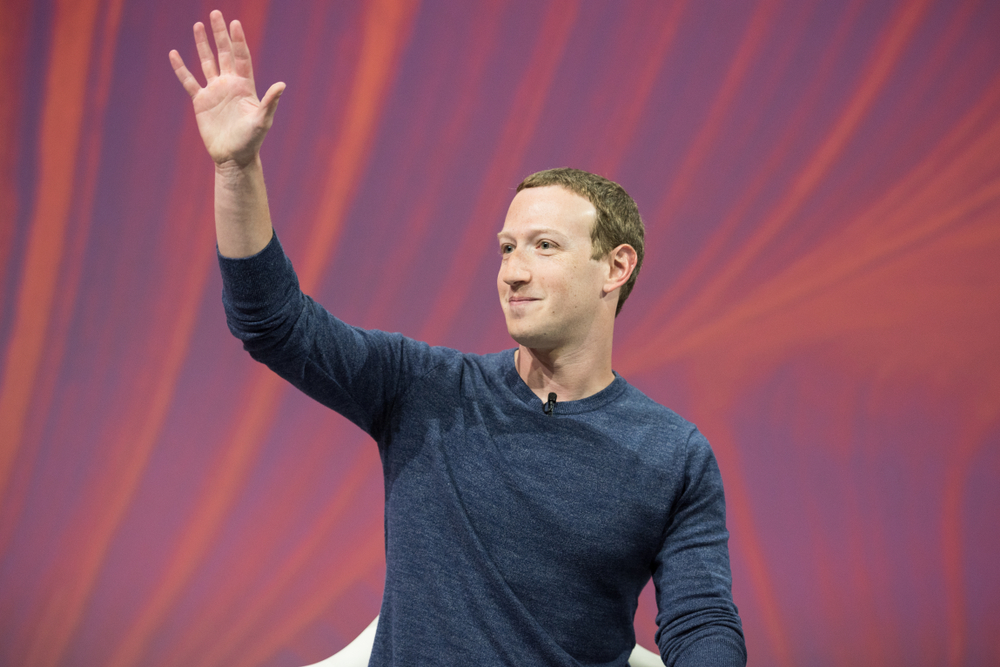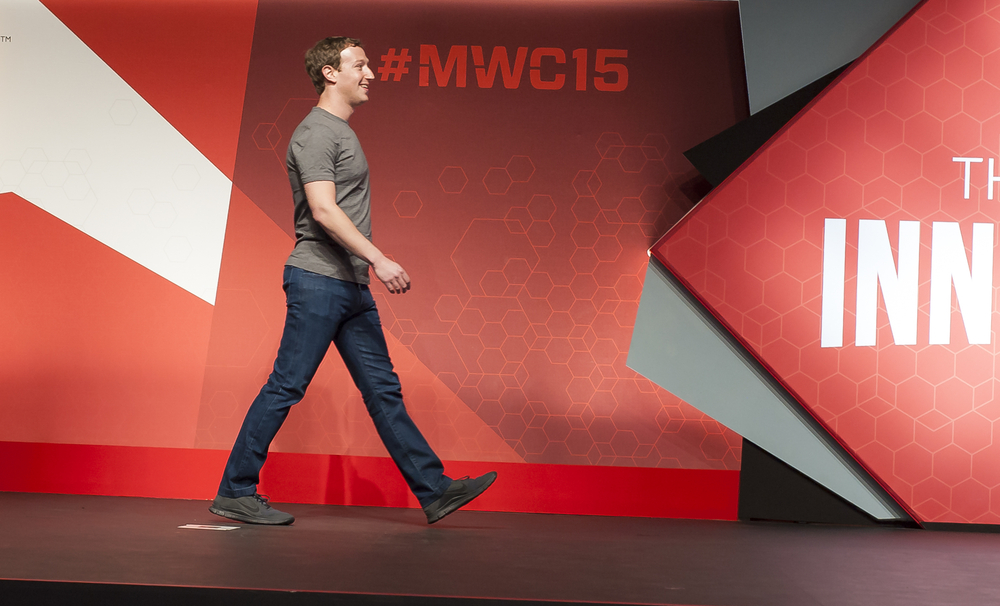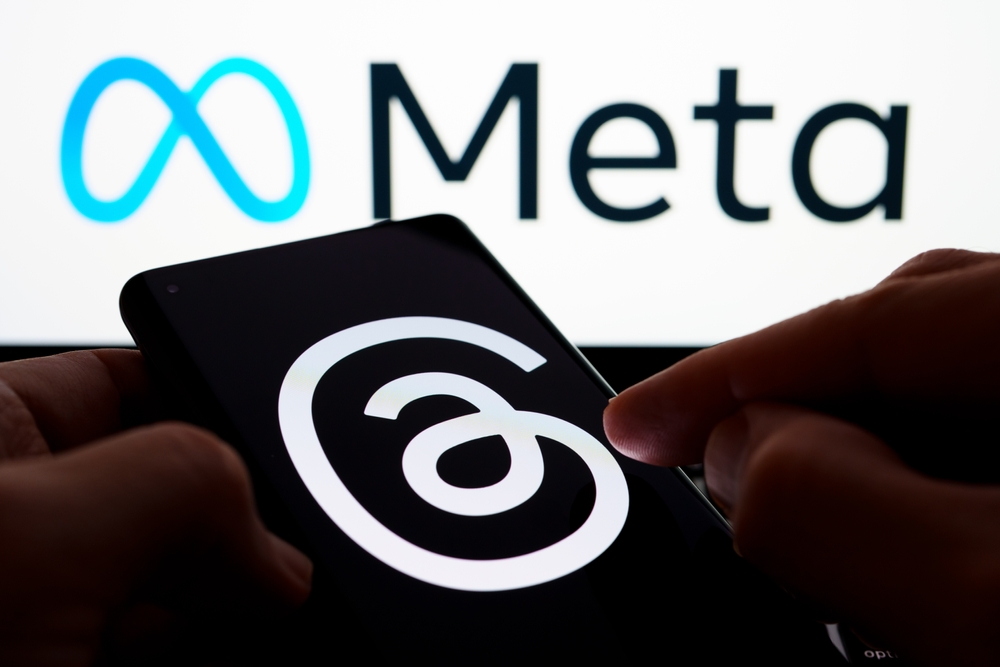Reason Mark Zuckerberg just spent $15,000,000,000 to hire this 28-year-old ‘college drop out’ for Meta

What makes a person worth $15 billion to one of the most powerful tech companies on Earth? Not a product. Not a patent. A mind. That’s the price Meta just paid to bring 28-year-old Alexandr Wang into its orbit—an audacious move that has the entire tech world watching. But this isn’t just another flashy hire. It’s a signal, a warning, and maybe even a glimpse into a future that’s arriving faster than most of us realize. At the heart of it all? A quiet genius who’s been quietly building the foundation of modern artificial intelligence while most of the world was still trying to understand what AI even meant.
In a time where companies rise and fall based on how well they harness machine intelligence, Wang’s appointment to lead Meta’s new superintelligence unit is more than news—it’s a shift in the narrative. He’s not a celebrity CEO chasing the spotlight. He’s a builder, a thinker, someone who saw that great AI isn’t just about flashy outputs but about the data that shapes it. His company, Scale AI, helped teach machines how to see, read, and understand, fueling the rapid rise of the models reshaping industries. Now, that same precision is being aimed at something even bigger: creating systems that might think for themselves.
Budak ni umur baru 28 tahun (lahir 1997).
— ۟ (@twitmarhaen) June 20, 2025
Tapi Mark Zuckerberg sanggup bayar lebih RM70 bilion semata-mata nak dia masuk team Meta.
Nama dia Alexandr Wang.
Dia bukan influencer, bukan selebriti,
bukan anak orang kaya. pic.twitter.com/ZhjqI8CD9a
A $15 Billion Bet — Why This Hire Is Making Headlines
Mark Zuckerberg just made one of the boldest moves in recent tech history: investing $14.3 billion in a nearly 50% stake in Scale AI and bringing on board its 28-year-old co-founder, Alexandr Wang, to lead Meta’s superintelligence efforts. This isn’t just another hire—it’s a seismic shift that signals Meta’s intensifying focus on artificial intelligence and its ambition to rival the biggest players in the field, like OpenAI and Google DeepMind. With Meta already owning platforms like Instagram, Facebook, and WhatsApp, this investment reveals where Zuckerberg sees the future—not in social media, but in AI infrastructure, advanced data modeling, and machine intelligence leadership.
Wang’s appointment isn’t a speculative bet; it’s a move backed by a proven track record. After dropping out of MIT during his freshman year, Wang co-founded Scale AI, a company that quickly became essential for labeling and preparing the massive datasets that fuel machine learning systems. By the age of 24, he became the youngest self-made billionaire in the world. Scale didn’t just catch the eye of investors—it became a cornerstone of AI development, with high-profile clients including Amazon and the U.S. federal government. Wang himself has testified before Congress, offering expert insight into national AI strategy, and developed working relationships with key figures like Sam Altman of OpenAI. He’s not just another tech entrepreneur; he’s someone who understands the technical, ethical, and strategic implications of AI at the highest levels.
Meta didn’t just acquire talent—they bought into Wang’s vision. The company has confirmed that he’ll lead a newly formed team focused on superintelligence, a term that points far beyond today’s chatbot assistants or social media algorithms. This initiative aims to position Meta at the forefront of artificial general intelligence—systems that can reason, plan, and learn like humans, or even beyond. For Wang, the decision to join Meta wasn’t immediate; he described it as once “unimaginable.” But the opportunity to build something transformational clearly outweighed the comfort of staying put. With some of Scale’s employees following him to Meta and Wang remaining on Scale’s board, this move doesn’t mark an ending—it marks the beginning of a new chapter not just for Meta, but possibly for AI itself.
Zuckerberg just became the most powerful man in tech.
— Tim Carden (@timjcarden) June 23, 2025
He hired a 28-year-old "AI prodigy" for $14B…
And together, they stole ONE thing OpenAI, Google, and Microsoft desperately need.
Here's why their next move has every CEO terrified: 🧵 pic.twitter.com/Hg8nQzf0VQ
The Rise of Alexandr Wang
Alexandr Wang’s story isn’t the typical Silicon Valley startup tale—it’s a sharp, deliberate climb fueled by clarity of purpose and an unusual level of technical insight for someone so young. Growing up in New Mexico to parents who were physicists working on military defense projects, Wang was immersed in analytical thinking from an early age. But it wasn’t just inherited intelligence that set him apart—it was his hunger to apply it. After entering MIT to study machine learning, he quickly found academia too slow for the pace of his ambition. Dropping out in his first year, he co-founded Scale AI with the goal of solving one of the most overlooked problems in artificial intelligence: clean, accurate data.
Scale AI was built on a deceptively simple idea—machine learning models are only as good as the data they’re trained on. While major tech companies were racing to build smarter algorithms, Wang realized that the bottleneck wasn’t the models—it was the labeling. His company offered a solution that could provide massive datasets with accurate, human-reviewed annotations at scale. That one insight launched Scale into the core of the AI ecosystem. The startup soon attracted billion-dollar investments from industry giants, landing contracts with the U.S. government and forming strategic ties with companies like Meta and Amazon. By focusing on quality data infrastructure—a need most companies had underestimated—Wang positioned himself as a key enabler of modern AI development.
But what truly separates Wang is not just technical genius; it’s foresight and discipline. He didn’t just build a company—he built influence. At just 28, he’s not only a billionaire but a trusted advisor to institutions wrestling with the future of AI policy and ethics. He’s testified before Congress, spoken at top industry events, and earned a reputation for balancing pragmatism with bold vision. His work isn’t about hype—it’s about precision, systems thinking, and a belief in AI as a tool that can reshape the world responsibly. When he announced his decision to join Meta, he made it clear: this wasn’t about career advancement. It was about being part of something “deeply unique” at a time when AI is moving from possibility to inevitability.
🚨 BREAKING: Zuckerberg just launched 𝗠𝗲𝘁𝗮’𝘀 𝗦𝘂𝗽𝗲𝗿𝗶𝗻𝘁𝗲𝗹𝗹𝗶𝗴𝗲𝗻𝗰𝗲 𝗗𝗿𝗲𝗮𝗺 𝗧𝗲𝗮𝗺
— Ruben Dominguez Ibar (@rdominguezibar) June 30, 2025
After months of quiet poaching from OpenAI, Anthropic, Google DeepMind, and even GitHub… Meta has officially announced its Superintelligence unit, and the team is absolutely… pic.twitter.com/X6hFRfBBkO
Inside Meta’s Superintelligence Ambitions
Meta isn’t just experimenting with AI—it’s betting its future on it. With the creation of a dedicated superintelligence unit, led by Alexandr Wang, the company is signaling a shift toward developing artificial general intelligence (AGI), systems capable of reasoning, learning, and making decisions at or beyond human-level capacity. This is a leap far beyond today’s generative AI tools that produce text or images. Superintelligence suggests a horizon where machines not only perform tasks but understand context, strategize outcomes, and potentially innovate on their own. And in this race toward AGI, timing, talent, and trust in the underlying data matter more than ever. That’s why Meta didn’t just need any AI leader—they needed one with deep knowledge of infrastructure, a builder’s mentality, and credibility across both government and tech.
This new team under Wang is expected to grow rapidly, starting with 50 top-tier engineers, researchers, and AI scientists. But what makes this effort distinct isn’t just the size—it’s the intent. Meta has already been developing open-source large language models like LLaMA, but the superintelligence unit signals a more centralized, focused push toward next-gen AI that could rival OpenAI’s GPT series or Google’s Gemini. The aim isn’t just to catch up—it’s to surpass. That means building AI systems that are not only powerful but safer, more aligned with human values, and capable of integrating across Meta’s massive platforms to reshape the user experience in ways we haven’t fully imagined. Whether it’s smarter virtual assistants in the metaverse, intelligent content moderation, or AI-driven scientific discovery, Meta is no longer playing on the sidelines—it wants to define the rules.
The choice to make this unit semi-autonomous under Wang’s leadership also speaks volumes. Rather than absorbing Scale AI entirely or folding it into Meta’s existing AI labs, the company chose to preserve Wang’s independent leadership while integrating key talent and resources. That approach echoes the playbook used by OpenAI, which has kept a startup-like structure even as it partners with Microsoft. It shows that Meta recognizes the importance of focus and agility when building toward AGI—where experimentation, speed, and philosophical clarity matter just as much as computing power. With billions invested and expectations sky-high, the superintelligence unit is more than a business initiative—it’s Meta’s bet on remaining a dominant force in the next digital era.

The New AI Power Struggle
We are living through a technological arms race—only this time, it’s not about weapons or satellites. It’s about intelligence. Artificial intelligence has become the battleground for influence, profit, and power among the world’s largest tech companies. OpenAI, backed by Microsoft, has surged ahead with its GPT models, reshaping everything from customer service to software engineering. Google has poured billions into DeepMind and its Gemini platform, pushing the boundaries of logic and language in AI. Even Amazon, Nvidia, and Apple are making quiet but strategic investments to avoid being left behind. Into this fray steps Meta—not as an underdog, but as a redefined contender, equipped with deep user data, infrastructure at scale, and now, one of the most respected young AI minds in the game.
This isn’t just corporate competition—it’s a race to shape the future. Whoever builds the most capable, aligned, and widely adopted AI systems stands to influence not just markets, but minds, governments, and even global norms. AI models are increasingly being used to generate code, write laws, assist in medical research, and mediate our online experiences. In such a world, leadership in AI isn’t about having the loudest marketing—it’s about setting the standard for safety, alignment, and capability. That’s what makes Alexandr Wang’s hiring so strategic. His ties to federal agencies, experience in ethically scaling data operations, and direct understanding of high-stakes AI development position Meta not just to compete—but to lead with both innovation and responsibility.

Still, the risks are enormous. The same power that makes AGI promising also makes it potentially destabilizing. Concerns about misinformation, bias, surveillance, and misuse loom large. Tech leaders now find themselves balancing ambition with caution, innovation with integrity. The companies that will define the AI era won’t just be the ones that build the fastest models—they’ll be the ones that build trust. In that sense, Meta’s move is more than a play for technological supremacy. It’s a statement: that it wants a seat at the moral and strategic table of AI development. And with Wang at the helm of its superintelligence initiative, Meta is signaling that it intends to lead not just in products, but in principles.
What This Moment Asks of Us
This isn’t just a story about a billionaire hiring a genius. It’s a glimpse into something much bigger—the beginning of a new era. Artificial intelligence is no longer just a tool we use; it’s becoming a force that may one day shape how we live, think, and make decisions. When companies like Meta spend billions to chase superintelligence, they’re not just investing in software—they’re investing in the future of human capability. And whether we like it or not, that future is being shaped right now, in boardrooms, research labs, and high-stakes meetings most of us will never see. The question isn’t whether AI will change the world—it’s whether we’ll be awake and engaged enough to help shape how it does.
That’s where people like Alexandr Wang come in—and why his story matters to all of us. His rise isn’t just impressive—it’s instructive. He represents a generation of builders who don’t wait for permission, who step into complex problems and lead with purpose. He didn’t chase fame or take shortcuts. He studied the system, saw the gaps, and built the infrastructure others didn’t even know they needed. His decision to join Meta wasn’t driven by money—it was driven by meaning. That kind of clarity isn’t just for the elite; it’s something we’re all being called to. In a time of distraction and noise, clarity is power. And those who find it will be the ones who shape what comes next—not just in AI, but in life.
So, what does this mean for you? You don’t have to be a tech founder to lead. You don’t need billions to make an impact. What you need is awareness—of the world you’re living in, the shifts that are happening, and the part you can play in it. Whether you’re an artist, educator, entrepreneur, or student, this moment invites you to step into deeper thinking, to ask tougher questions, and to build with intention. Because the future isn’t just something we inherit—it’s something we help author. And the truth is, it’s already being written.
Loading...

